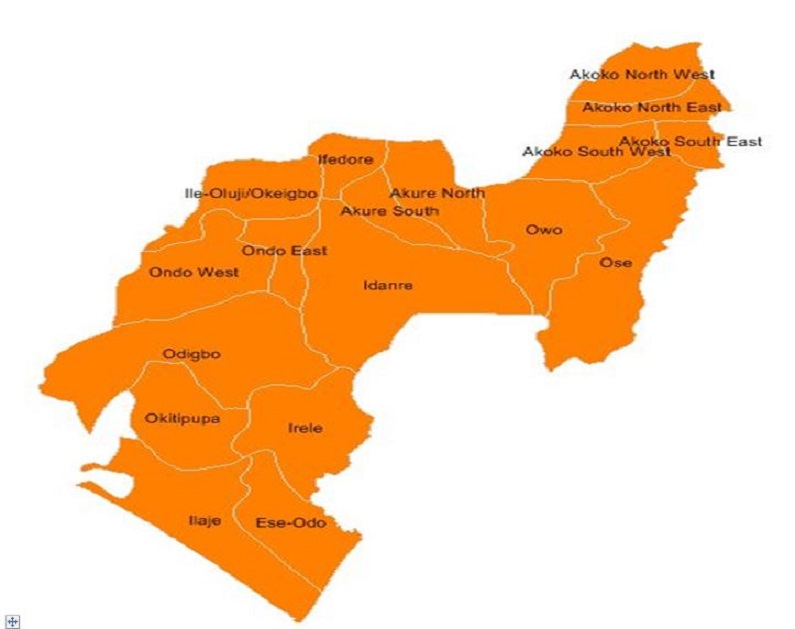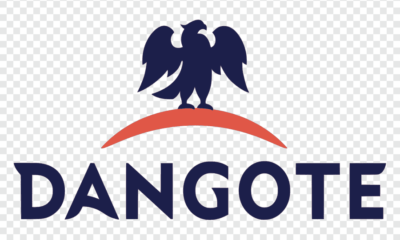NEWS
How IOCs Connive Against Dangote Refinery, Nigeria’s Economy

The reluctance of International Oil Companies (IOCs) operating in Nigeria to shift from exporting Nigeria’s crude to supplying the newly inaugurated 650,000-barrel-capacity Dangote Refinery has been identified as capable of major economic impact.
The connivance of the IOCs came to the fore when the President of the Dangote Group, Alh Alike Dangote spoke to the CNN recently.
In the interview, Alh Dangote pointed out that the IOCs in Nigeria were demonstrating reluctance to sell crude oil to the Dangote Refinery.
He observed that IOCs might have become accustomed to exporting crude for foreign exchange, an operational standard they were reluctant to tamper with.
Alh Dangote pointed out that the new refinery had been dependent on the Nigerian National Petroleum Company Limited (NNPC Ltd) for it supply of crude, since the IOCs prefer to be exporting.
He said, “The NNPC is doing its best, but some of the IOCs, they are struggling to give us crude, everybody is used to exporting and nobody wants to stop exporting.”
The industrialist decried that Africa was not witnessing the desired economic growth because of exportation of raw materials and importation of the same as finished goods.
“Africa is not going the way it should because we export raw materials and import finished goods. It doesn’t matter what it is, even if it is gold or whatever, raw material is always priced at a ridiculous amount compared to finished goods,” Dangote pointed out.
In his opinion, those benefitting from importation of refined products would not want the refinery to succeed.
Drawing attention to the capacity of the Dangote Refinery, he disclosed that it would take about 21 million barrels of crude oil from Nigeria every month. He explained with Dangote Refinery operating at full capacity, that 21 ships of crude would no longer import or export oil into Africa.
He clarified that, “Almost 21 ships will no longer leave the African continent, either from Nigeria or Angola, we will be able to take those crudes and be able to refine and distribute the product. I feel very proud as an African that we have been able to demonstrate that it can be done, and we’ve done it.
“If we take all the crudes from Nigeria, it means we will take 21 million barrels per month and that will also help in terms of reducing the C02 emissions.
“Rather than ships coming from Europe to bring in products, or the ships going out of Nigeria, 21 ships going out of Nigeria every month, and then you have the product coming into Nigeria. In totality, when you calculate, you are talking about 480 ships of 1 million barrels.”
Recall that in April, the Nigerian Upstream Petroleum Regulatory Commission (NUPRC), issued a new policy requiring oil producers to priotitise sale of crude to domestic refineries before attending to foreign demands.
However, The PUNCH reports that “It appears the IOCs are not obeying this directive.”
In what appears to be a confirmation that the IOCs are actually conniving against the Dangote Refinery, the spokesperson for the NUPRC, Olaide Shonola, said the commission was intervening to ensure the local sale of crude to Dangote and other refineries in the country.
According to Shonola “We’ve been intervening and intervening. I am sure you’re aware of a recent meeting that was held with them on domestic crude oil supply. We will keep engaging them, NUPRC has been doing that.
“I can’t say we will force them, but as the regulator, we can mandate. And that’s what we are doing, giving clear directives that this must be done. We will just keep on engaging and you will agree with me that most of these things have to be planned. We will keep on engaging. We will do our regulatory function in that area.”
It is not clear if the regulatory authorities are contemplating sanctions against the erring IOCs.
NEWS
Tinubu Not To Blame For North’s Challenges – Ex-Kaduna Speaker

Hon. Yusuf Ibrahim Zailani, former Speaker of the Kaduna State House of Assembly, has defended President Bola Ahmed Tinubu against criticisms over the difficulties facing Northern Nigeria.
He argued that the North has received substantial financial support through regional development commissions and should focus on utilizing these resources effectively.
Zailani made this statement while speaking to journalists after receiving Alhaji Yerima Shettima, President-General of the Arewa Youth Consultative Forum (AYCF), who visited to offer condolences following the passing of his stepmother, Hajia Fatima Abdullahi (Goggu Ladi).
READ ALSO: Dangote Peugeot Begins 3008 GT Assembly In Kaduna
He noted that Tinubu’s administration had provided significant financial backing to the North, particularly through the creation of regional development commissions, each receiving ₦750 billion annually—totaling ₦2.25 trillion for the region.
“President Tinubu has, in his own way, liberated the North from poverty and underdevelopment.
“With an annual budget of ₦750 billion allocated to each of the North’s three development commissions—totaling ₦2.25 trillion annually—the North has no reason to struggle with poverty, unemployment, and underdevelopment,” Zailani stated.
He pointed out that if these funds were used efficiently, they could transform key sectors such as power, agriculture, and industrialization.
He cited an example where ₦200 billion could generate 100 megawatts of solar power, while investments in fertilizer blending plants and research could boost agricultural productivity.
Zailani stressed the need for accountability, urging Northerners to shift their focus from blaming the Federal Government to questioning the performance of their own development commissions.
“Instead of constantly questioning what the Federal Government is doing or not doing, we should be asking what our development commissions are doing with the allocated funds,” he said.
Addressing concerns about the Proposed Tax Reforms Bill, which some argue favors industrialized states like Lagos, Zailani encouraged the North to take advantage of its development funding and focus on self-sufficiency.
“Now that we have been empowered with development commissions, let us build our own industries and generate our own taxes instead of complaining,” he added.
He also commended Kaduna State Governor Uba Sani for his efforts in infrastructure development, particularly his directive for the construction of 20 kilometers of asphalt roads in each constituency.
He called on AYCF and similar organizations to collaborate with the government to drive progress in the region.
In response, Alhaji Yerima Shettima offered prayers for the late Hajia Fatima Abdullahi and reaffirmed AYCF’s commitment to ensuring transparency and accountability in governance.
“We will continue to uphold the truth and ensure justice for all,” Shettima stated.
NEWS
Lagos To Shut Independence/Mekwen Bridge For Two Months

The Lagos State Government has announced the closure and diversion of traffic on the Independence/Mekwen Bridge (inbound Marina/CMS route) for two months to allow for emergency repairs.
In a statement on Sunday, the Commissioner for Transportation, Oluwaseun Osiyemi, disclosed that the repair work would commence on Wednesday, March 19, and run until Monday, May 26, 2025.
As a result, the section of the road from the National Open University of Nigeria (NOUN) through Bonny Camp Bridge down to Independence Bridge will be closed to vehicular movement.
READ MORE: Woman Jumps Into Lagos Lagoon, Recovered Dead
Additionally, the Bonny Camp Underpass Bridge service lane inbound Independence Bridge will not be accessible to motorists. However, the service lane from Ahmadu Bello Way to Ozumba Mbadiwe will remain open.
To ease traffic congestion, the government has provided alternative routes for motorists.
“For motorists heading to Victoria Island from Ahmadu Bello Way, Osiyemi advised using Ozumba Mbadiwe Avenue inbound Akin Adesola Street, then proceeding to Falomo Roundabout and linking Obafemi Awolowo Road to access Ring Road.
“Those traveling to the 3rd Mainland Bridge from Ahmadu Bello Way should go through Ozumba Mbadiwe Avenue inbound Akin Adesola Street, then link Alfred Rewane Road to Osborne Road before connecting to Ring Road.
“Motorists heading to Inner Marina and CMS from Ahmadu Bello Way will be diverted through Ozumba Mbadiwe Avenue inbound Akin Adesola Street to connect Falomo Roundabout, then link Obafemi Awolowo Road to access J.K. Randle Road/King George V Road.
Osiyemi assured that traffic management personnel would be deployed to regulate movement during the repair period.
“Motorists heading to Ahmadu Bello Way from Inner Marina/CMS will have through-traffic access,” he said.
The commissioner also reaffirmed the government’s commitment to ensuring minimal disruption, stating that officers of the Lagos State Traffic Management Authority (LASTMA) will be on the ground to manage traffic flow along the affected routes.
The state government urged residents to plan their journeys accordingly and comply with the alternative routes to ease congestion during the two-month repair period.
NEWS
Ondo State To Employ 1,100 Primary School Teachers

Governor Lucky Aiyedatiwa of Ondo State has approved the recruitment of 1,100 primary school teachers to fill vacancies in public schools across the 18 local government areas of the state.
The announcement was made in a statement on Sunday by Bolu Ajijo, the Director of Information and Public Relations at the Ondo State Universal Basic Education Board (SUBEB).
According to the statement, the approval was granted after the completion of the recruitment process.
READ ALSO: JUST IN: Nine Abducted Surveyors Freed In Ondo After N20m Ransom Payment
“As part of deliberate efforts to fill critical vacancies in public primary schools across the state, Ondo State Governor, Lucky Aiyedatiwa, has approved the employment of one thousand one hundred teachers by the Ondo State Universal Basic Education Board,” the statement read.
Reacting to the decision, the Executive Chairman of Ondo SUBEB, Victor Olambitan, commended the governor for addressing the shortage of teachers in the state’s public schools.
“The employment will go a long way in improving the pupil-teacher ratio in our public primary schools and, at the same time, enhance the quality of education delivered in schools, especially in rural and hard-to-reach areas across the state,” Olambitan stated.
He also assured applicants that details on how to check the list of successful candidates and begin the documentation process would be made public soon.























